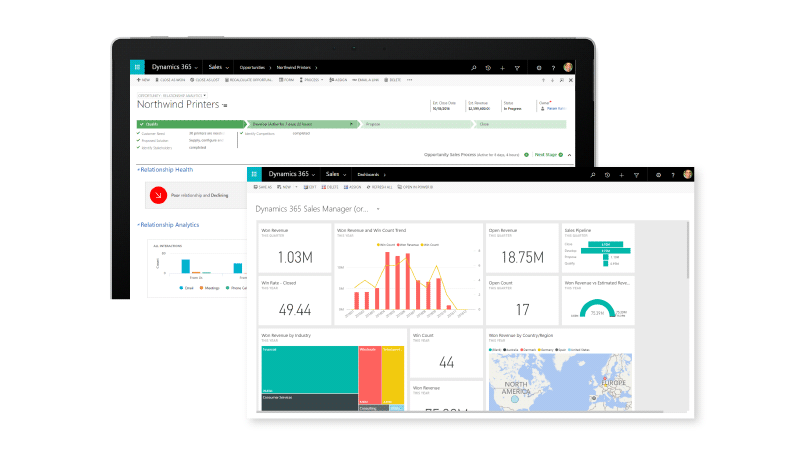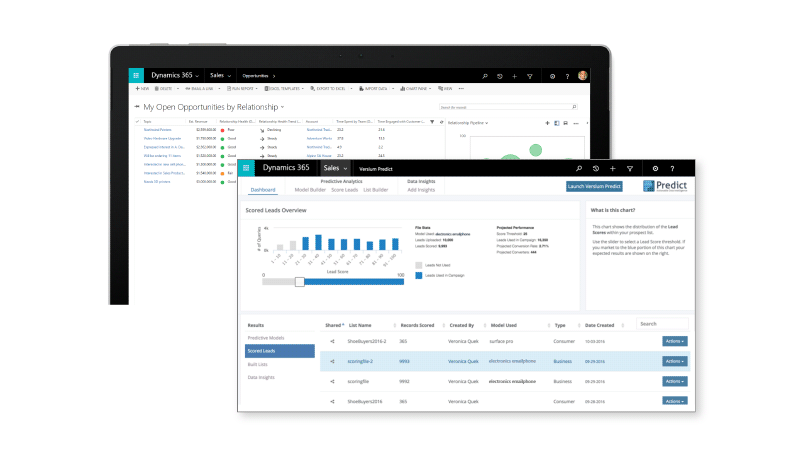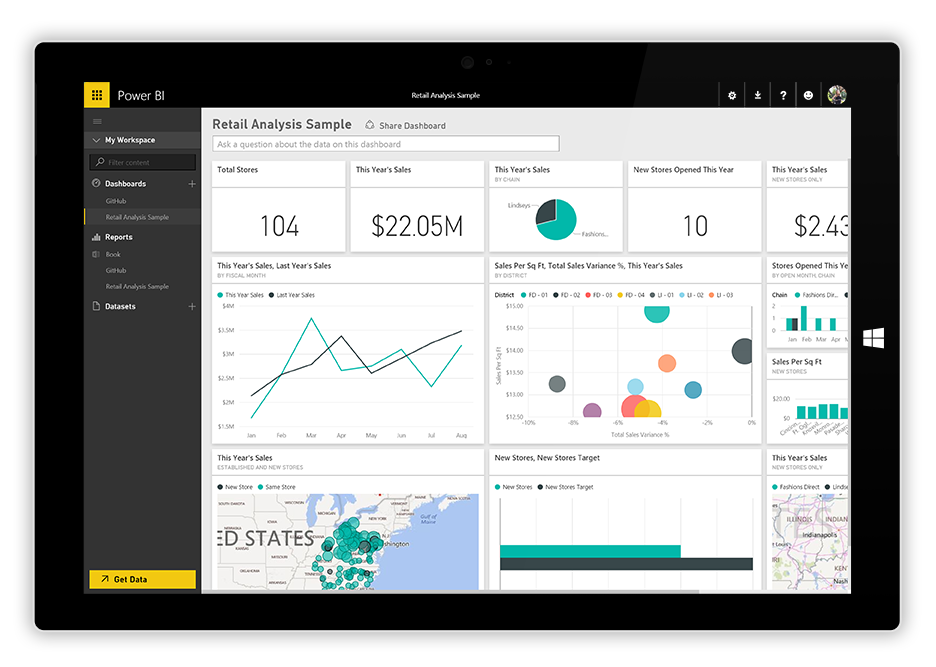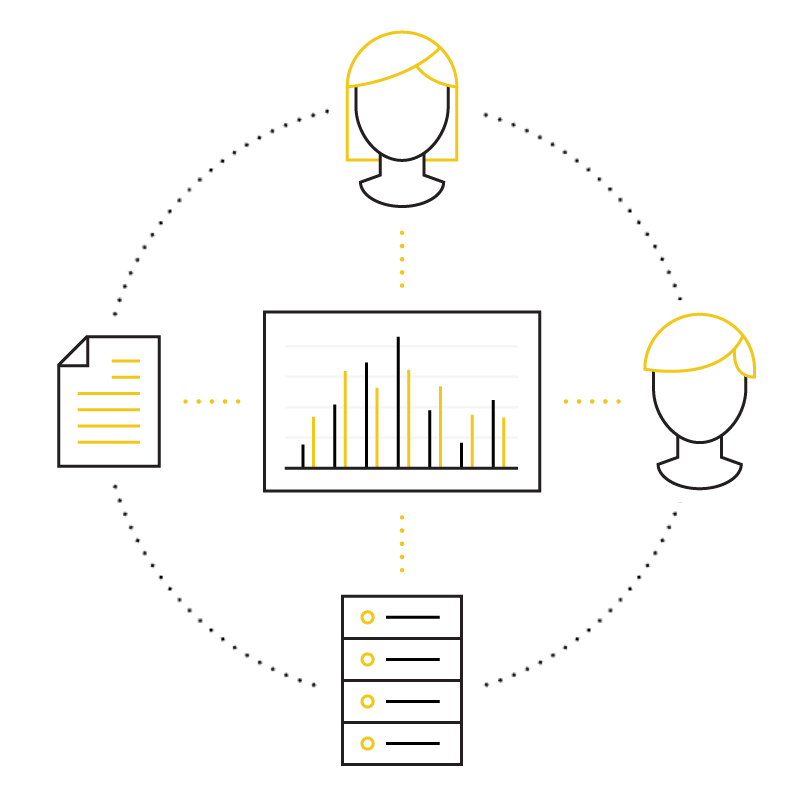To survive in today’s market, the relationship that you have with your client is crucial. From acquisition to retention, your business growth depends on maintaining a strong connection with your contacts. As you might have heard before, it is five times more expensive to attract new customers than keep current clients. First, you need to evaluate your performance in building relations with your contacts.
Here are six metrics to measure your sales customer relationship:
- Contact Frequency
- Sales Closing Rate
- Cross-Selling and Up-Selling Rate
- Customer Retention Rate
- Satisfaction Score (CSAT / NPS)
- Lifetime Customer Value
CRM software can portray all of your customer relationship touch points
As a small business, you need strategies that will help you remain active with your clients. To meet this requirement, you should map all the interactions between your business and customers. CRM is there to help you set up this process and automate those interactions.
Organizations that are thoroughly familiar with their clients can build custom responses and anticipate their requirements and needs. They can set templates or automate emails based on those frequent requests.
What should a small business want from their CRM?
Nowadays, small businesses use CRM to deliver measurable advantages that help the enterprise to drive profitable growth, attain operational excellence, and generate revenue. It provides seamless end-to-end integration, flexible implementation, and offers comprehensive functionality.
Also, CRM includes client-facing departments like marketing, sales, and support. It provides meticulous reports and a 360° view across all interaction channels and customer touch points.
The advantages of using CRM software for small business:
1) Improved sales success and customer profitability

Reduce the sales cycle and increase close rates with automated sales processes, leads management, quote creation, and order management. Use powerful sales management tools to streamline the entire process. Manage and record new opportunities with relevant data, such as probability, potential competition, source of the lead, and deal closing date.
2) Minimized costs
Costs are commonly high with sales and marketing operations. With a CRM software, your team can increase efficiency, accuracy, avoid errors, and reduce money spent on operations.
3) Track and run marketing campaigns
CRM makes it easy to view all marketing goals and activities plus lead generation and follow up. Users are able to drill down relevant activities within a marketing campaign like opportunities, communications, responses, prospects, planned budget, and actual cost. This comprehensive view of marketing campaigns minimizes the guesswork and utilizes the marketing resources to their highest potential.
4) Consistent and efficient customer service
Client service experts can run cases from the first contact to the final resolution. It can access a rich knowledge base of service information and can quickly and accurately cover all customer needs with automated routing and queuing of service requests.
5) Improved client relations

Armed with advanced and user-friendly CRM tools, companies are able to handle client requests more quickly, which enhances and improves the customer experience.
6) Seamless integration
The CRM solutions can easily integrate with all other business applications and systems. For example, the integration with Microsoft Outlook allows companies to synchronize opportunities and contacts while gaining instant access to client data from your inbox.
7) Improved decisions

Empower managers with comprehensive customer insights, relevant reports, and a complete view of marketing, sales and customer service history, so they are able to identify the opportunities, trends, and issues that guide their decisions.
8) Business growth
Through seamless end-to-end business operations and processes, you can manage client-related business processes throughout the whole organization and along the value chain. Starting from a marketing campaign and initial contact through payment and delivery. CRM gives an integrated view of potential and existing customers, opportunities, activities, competition, products and services, quotation and sales orders.
9) Improve service delivery and product development processes
With a thorough understanding of your customers’ preferences and buying habits with CRM, you can provide value-added services and best-in-class products that are difficult for competitors to duplicate.
Good CRM software is a compass for your small business. Know exactly where you are with your clients and prospects, what direction to take to keep them satisfied, and what obstacles to overcome to close deals with them.

Developing your marketing, sales, and support department to their full potential is crucial for building excellent and robust customer relations. CRM extensively uses customer related information by integrating the areas of sales, marketing and service, and verifying the creation of client value.
With procedures and processes that build a business management model centered on a 360° approach to the customer, CRM solution enables small businesses to proactively run their customer interaction for maximum business profit.
- Sales: Includes complete sales planning and forecasting, contact and account management, territory management, sales pipeline, activity management, quotation and order management, price configuration, contracts, commission management, time management, comprehensive reporting, and sales analytics.
- Marketing: Includes extensive functionality for lead management, customer segmentation, resource management, planning and promotion management, campaigns and analytics. Increase marketing efficiency and drive client demand throughout the whole organization.
- Service: Utilize a rich set of tools that turn service into a profitable business line, including complaint management, support requests and orders, case management, service planning and reporting, workflow and escalation, knowledge management and installed base.
- Powerful analytics: Lets small and midsize enterprises to analyze sales opportunities by client, product, or territory, and run sales forecasts for a specified time.
The proper CRM product is capable of transforming the way small businesses are winning and retaining clients, by building an interconnected workplace that extends across business solutions and web environment.
The CRM system offers a platform for business agility, enabling the small businesses to adapt their processes smoothly to constantly changing market dynamics, orchestrate business operations across and beyond the organization, and transform themselves into client-centric organizations.
It provides a great breadth and depth of functions by assisting the most comprehensive range of end-to-end processes that address specific business needs. Most importantly, the CRM applications are user-friendly, versatile, and cost-effective solutions, suitable for small enterprises to improve their marketing, sales, and support efficiencies.
Finally, CRM software helps small and midsize companies to turn prospects into customers, grow sales and client profitability, and improve customer satisfaction.
